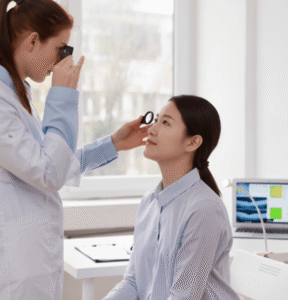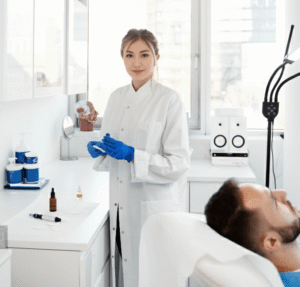Overview
Withdrawal from addiction refers to the physical and psychological symptoms that occur when a person reduces or stops the use of an addictive substance. These substances can include alcohol, opioids, nicotine, benzodiazepines, stimulants, or prescription medications.
➤ Withdrawal occurs because the body and brain adapt to the presence of the substance, leading to tolerance and dependence.
➤ Symptoms vary based on substance type, duration of use, and individual health.
➤ In Korea, specialized rehabilitation centers and hospitals provide medical supervision, detox programs, counseling, and therapy for safe withdrawal.
Key Facts
► Definition: The collection of symptoms experienced when stopping or reducing an addictive substance after prolonged use.
► Prevalence: Millions worldwide experience substance withdrawal; alcohol and opioid withdrawal are most common.
► Associated symptoms: Anxiety, tremors, nausea, sweating, irritability, hallucinations, and in severe cases, seizures.
► Risk factors: Long-term substance use, high doses, polydrug use, underlying medical or mental health conditions.
► Treatment in Korea: Includes detoxification, medical monitoring, pharmacological support, counseling, and rehabilitation therapy.
What Is Withdrawal from Addiction?
Withdrawal is the body’s reaction to the absence of a substance it has become dependent on.
➔ Dependence occurs as the brain’s neurotransmitter systems adapt, leading to tolerance.
➔ Withdrawal symptoms may appear within hours to days of the last dose, depending on the substance.
➔ Without proper care, withdrawal can be dangerous, even life-threatening, especially with alcohol, benzodiazepines, or opioids.
What Symptoms Are Related to Withdrawal?
Symptoms vary by substance but often include:
→ Physical symptoms: Sweating, tremors, headache, muscle pain, nausea, vomiting, diarrhea, increased heart rate, and high blood pressure.
→ Psychological symptoms: Anxiety, irritability, depression, mood swings, agitation, insomnia, or confusion.
→ Severe symptoms: Seizures, hallucinations, delirium tremens (DTs, in alcohol withdrawal), or severe dehydration.
→ Cravings: Intense desire to use the substance again.
→ Fatigue and weakness due to metabolic and sleep disturbances.
Causes / Possible Causes of Withdrawal
Physiological Causes
➤ Neurochemical adaptations – Chronic substance use alters dopamine, GABA (gamma-aminobutyric acid), serotonin, and opioid receptor activity.
➤ Tolerance development – Requires increasing doses to achieve the same effect; sudden cessation triggers withdrawal.
Substance-Specific Causes
➔ Alcohol withdrawal – Can lead to tremors, anxiety, seizures, and DTs.
➔ Opioid withdrawal (heroin, morphine, oxycodone) – Nausea, diarrhea, muscle pain, and severe cravings.
➔ Benzodiazepine withdrawal – Anxiety, insomnia, irritability, and risk of seizures.
➔ Nicotine withdrawal – Irritability, anxiety, increased appetite, and headaches.
➔ Stimulant withdrawal (cocaine, methamphetamine) – Fatigue, depression, intense cravings, and sleep disturbances.
Other Contributing Factors
→ Long-term substance use or high doses increase withdrawal severity.
→ Concurrent medical or psychiatric disorders worsen withdrawal outcomes.
→ Lack of social support or stressful environments can exacerbate symptoms.
When Should I Seek Medical Help?
Withdrawal can be dangerous and sometimes life-threatening. Seek medical help if:
➤ Severe physical symptoms occur, such as seizures, high fever, or cardiac irregularities.
➤ Delirium, hallucinations, or severe confusion develops.
➤ You are withdrawing from alcohol, benzodiazepines, or opioids without supervision.
➤ Symptoms are intense, prolonged, or worsening.
➤ Early medical intervention reduces risk of complications and supports safe detox.
Care and Treatment
Lifestyle and Self-Care Measures
► Avoid situations or people that trigger cravings.
► Maintain hydration and nutrition to support the body during detox.
► Practice relaxation techniques, breathing exercises, or meditation.
► Seek peer support or counseling for emotional stability.
Medical Treatments
➔ Detoxification programs – Medically supervised withdrawal with gradual dose reduction.
➔ Medications:
- Alcohol: Benzodiazepines for seizure prevention.
- Opioids: Methadone, buprenorphine, or naltrexone to ease symptoms.
- Nicotine: Nicotine replacement therapy (patches, gum).
- Benzodiazepines: Gradual taper under supervision.
➔ Monitoring vital signs – To detect complications early.
Procedural and Advanced Interventions
→ Inpatient detoxification units – For severe or high-risk cases.
→ Outpatient programs – Supervised medication management with counseling.
→ Therapy sessions – Cognitive-behavioral therapy (CBT), motivational interviewing, and relapse prevention.
Treatment Options in Korea
Diagnosis and Assessment
➤ Addiction specialists and psychiatrists assess substance type, dependence severity, and medical comorbidities.
➤ Laboratory tests and physical examinations identify organ damage or complications.
➤ Psychological assessment to determine mental health needs and therapy planning.
Non-Surgical Care
► Medically supervised detoxification with pharmacological support.
► Counseling and therapy for coping strategies, relapse prevention, and behavioral modification.
► Lifestyle support including nutrition, sleep hygiene, and stress management.
Advanced Care
➔ Inpatient rehabilitation for high-risk, chronic, or polysubstance users.
➔ Multidisciplinary approach combining psychiatry, internal medicine, social work, and physiotherapy.
➔ Follow-up outpatient care to maintain sobriety and prevent relapse.
Rehabilitation and Lifestyle Support
→ Education on avoiding triggers, managing cravings, and developing healthy routines.
→ Support groups and therapy to maintain long-term abstinence.
→ Monitoring for co-existing mental health disorders and providing ongoing care.
Korean addiction treatment centers provide safe, evidence-based withdrawal management, therapy, and rehabilitation programs to ensure physical safety, psychological support, and long-term recovery.













